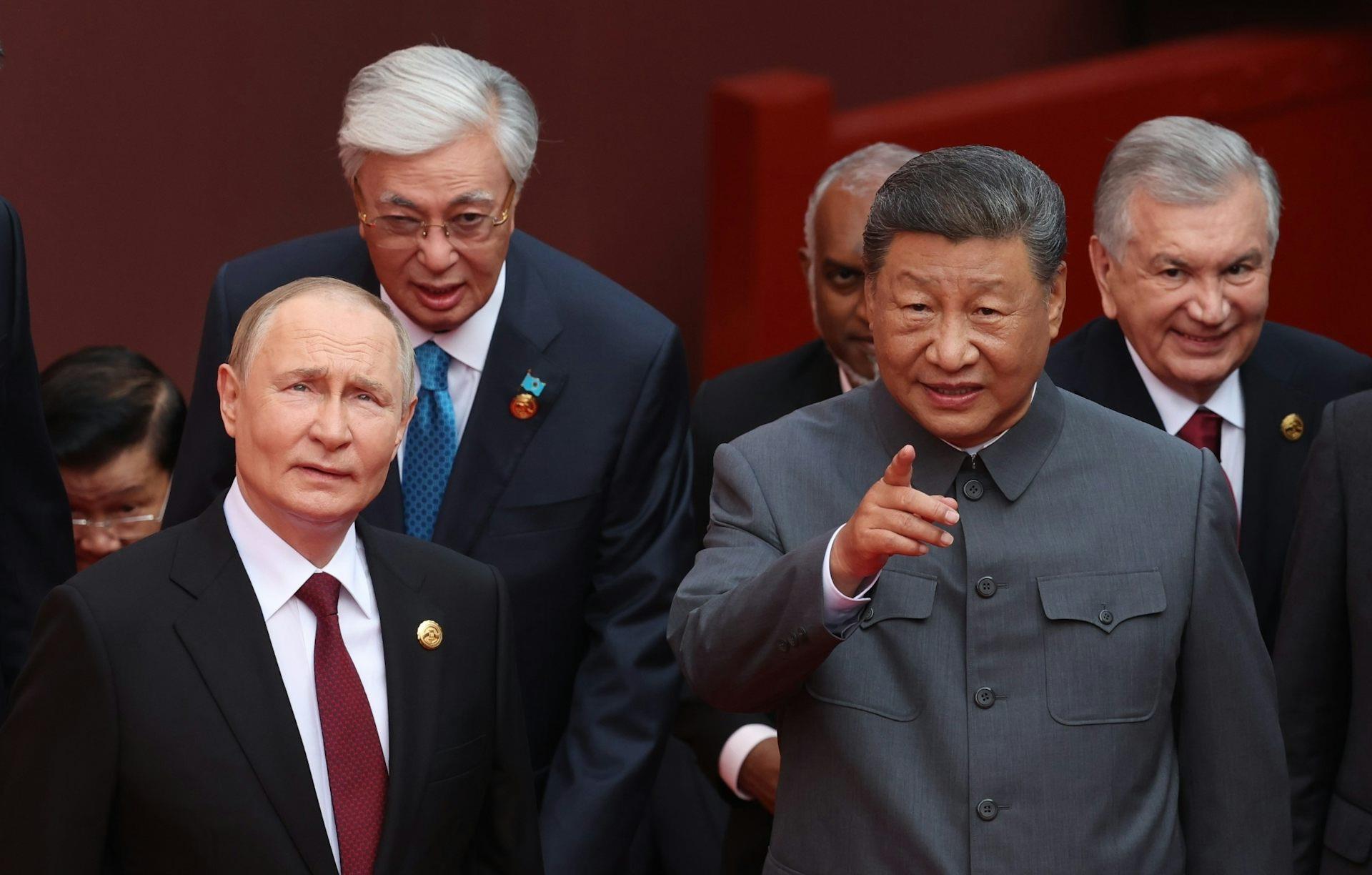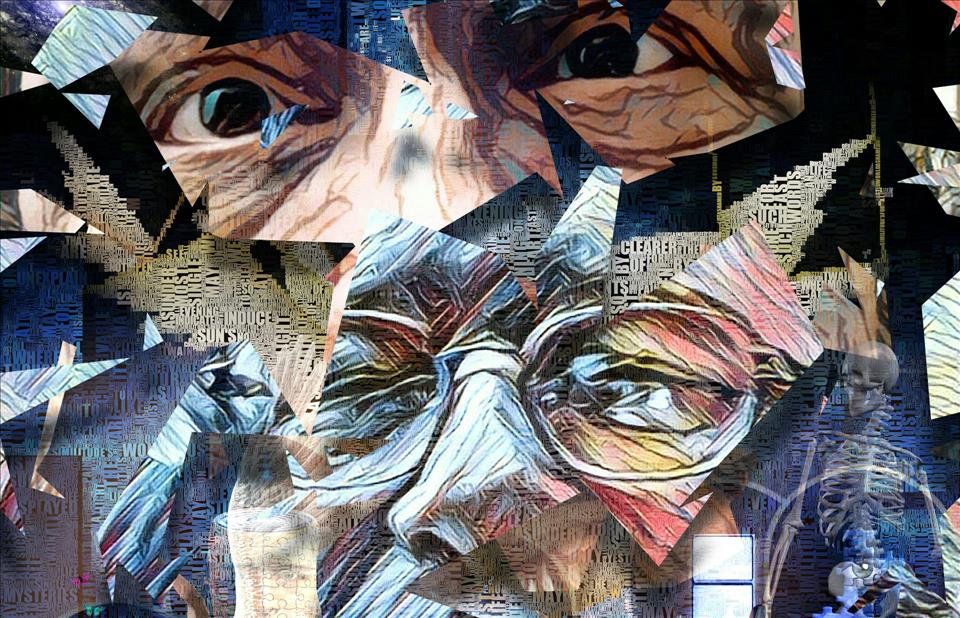
How Authoritarian States Sculpt A Warped Alternative Reality In Our News Feeds
But this is a somewhat simplified version of events. In fact, authoritarian countries, such as Russia and, increasingly, China, are engaged in continuous and more expansive projects aimed at creating a tilted political reality. They seek to subtly undermine the image of western democracies, presenting themselves, and their growing bloc of authoritarian partners, as the future.
Crafting this political reality includes the use of blatant falsities, but the narrative is typically grounded in a much more insidious manipulation of information. Positive facts are highlighted to a disproportionate degree, while inconvenient ones are ignored or taken out of context, so that they appear more in line with the narrator's goals.
The Kremlin has, for a long time, used state-sponsored media outlets, proxy media outlets or bots to disperse a consistent stream of stories – news articles, tweets, videos or social media posts – designed to subtly steer and antagonise political discussions in democratic societies. Reports show that these stories can reach audiences far beyond their original Russian outlets. They are unknowingly (or sometimes, knowingly) repeated by local or national media, commentators or online users.
A common trope is the idea that democratic societies are chaotic and failing. Coverage might exaggerate crime, corruption, and social disorder, or highlight public protests, economic stagnation, or governmental instability as evidence that democracies are not working. The underlying message is that democracy leads to chaos.
Some stories focus on making progressive values in western societies seem weird. They ridicule progressive social change regarding, for example, LGBTQ+ rights or multiculturalism, making them seem illogical or silly.
Others use real grievances but frame them to amplify feelings of discrimination and victimhood. In the Baltic states, for example, Russian media frequently highlights the alleged persecution of Russian speakers, suggesting they are being treated as second-class citizens and giving far less space to other perspectives.
If we look at the growing online “manosphere”, this mechanism is also in evidence – messaging that reinforces a collective sense of victimhood that fuels division and distrust.
An authoritarian alternativeThese types of stories, portraying western societies as dysfunctional and strange, have long been used by the Kremlin to damage the image of democracy. Increasingly, however, we are also seeing Russia and China collaborating in the global online media space to jointly present the authoritarian world as stable and principled alternative powers.

Putin and Xi: partners in a disruptive online narrative. EPA/Alexander Kazakov/Sputnik/Kremlin Pool
Both Russia and China are critical of the“international rules-based order”, a framework of liberal rules and political norms that emerged after the second world war. They see this order as western-centric and want to reshape the global order in their interest.
Military and economic collaboration form part of their efforts to challenge this order, but global media and online spaces are important too. Both states, for example, frequently disseminate stories that portray western countries as neo-colonial powers.
Another theme is that democracies are hypocritical actors who preach equality and fairness but do not practice it. Stories of a lack of unity in western alliances like Nato or the EU are also consistent in Russian and Chinese narration. Conversely, Russia and China are presented as logical and sane countries, seeking to protect other, more vulnerable nations from western exploitation.
Why are these stories effective?These stories seem to resonate, especially with audiences in developing countries. That's often because they have a kernel of truth. Storytellers might focus on real issues, like inequality, foreign policy missteps or double standards and, of course, it's true that many western countries are indeed dealing with cost of living crises and that foreign policy is not always consistent. Memories of colonial rule make accusations of current exploitation all the more believable.
It's often the way a story is told that misleads. Details are withheld or taken out of context. Speculative information is presented as fact. This creates a distorted version of the truth.
The stories are often told in emotive terms in a bid to trigger our anger, shock, fear or resentment. For example, in the context of the war in Ukraine, disinformation might suggest that our governments are betraying us by getting involved in foreign wars, or that ordinary citizens are the ones paying the price for the ambitions of a corrupt elite.
They are laden with scandal and sensationalism, skipping nuance in favour of emotional resonance. This ensures the stories are shared and promoted across social media.
The truth can be complex and, at times, boring. Yet by capitalising on our tendency to gravitate towards the sensational, Russia and China can drip-feed a specific worldview into our own – where democracy is ineffective and chaotic and where they offer a fairer, functional future.
In this way, disinformation today is less about outright falsehoods and more about the subtle sculpting how we see the world. Over time, this quiet reshaping can reach far beyond what a false headline might do, and make us doubt the very value of democracy itself.

Legal Disclaimer:
MENAFN provides the
information “as is” without warranty of any kind. We do not accept
any responsibility or liability for the accuracy, content, images,
videos, licenses, completeness, legality, or reliability of the information
contained in this article. If you have any complaints or copyright
issues related to this article, kindly contact the provider above.


















Comments
No comment